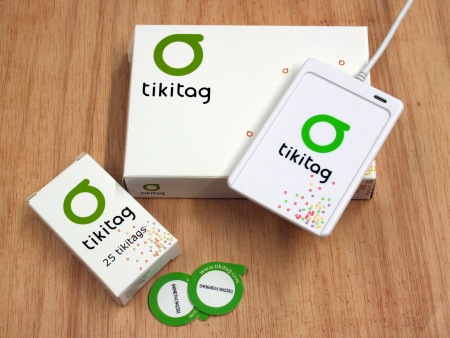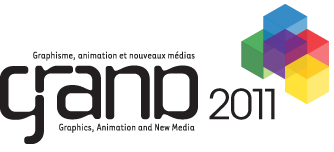ReadWriteWeb has a nice article on 5 Companies Building the “Internet of Things”. I like the phrase “internet of things” – it gives a sense of what we might achieve if objects could be networked. The cool part is that there are now affordable kits that use RFID that can you can buy to start connecting things. I am reminded of a project I learned about at the GRAND meeting called The Reading Glove. Wearing the “reading glove” users pick up “narratively rich objects” that then trigger audio clips that then weave a puzzle narrative.
Is College Worth It? Pew Social & Demographic Trends
I came across this chapter from a report from the Pew Research Centre on
Is College Worth It?. The report looks at the value of education over a lifetime of work and concludes that “The typical college graduate earns an estimated $650,000 more than the typical high school graduate over the course of a 40-year work life…”
This chapter is part of a larger report on The Value of College. The authors make a number of points:
- “A majority of Americans (57%) say the higher education system in the United States fails to provide good value for the money students and their families spend, and about four-in-ten college presidents say the system is headed in the wrong direction”
- “just 19% of the 1,055 college presidents surveyed say they believe that the U.S. system of higher education is the best in the world. And just 7% say they think it will be the best in the world 10 years from now.”
- “most college presidents (52%) say college students today study less than their predecessors did a decade ago, while just 7% say they study more. And 58% say that public high schools are doing a worse job of preparing students for college now than they did a decade ago, while just 6% say they are doing a better job.”
- “the Pew Research survey finds that college graduates, on average, are happier and more satisfied with their jobs, their financial situation and their education than are those who did not attend college.”
- “When asked what it takes for a young person to succeed in the world, more people point to traits such as a good work ethic (61% say this is extremely important) and knowing how to get along with people (57%) than say the same about a college education (42%).”
- “the cost of a college education—at both public and private institutions—has roughly tripled since 1980 in inflation-adjusted dollars”
- “By a small but statistically significant margin, the public says that the main purpose of a college education should be to teach work-related skills and knowledge (47%) rather than to help an individual grow personally and intellectually (39%). … College graduates tend to place more emphasis on personal and intellectual growth (52%) over career preparation (35%), while those who are not college graduates lean the other way, emphasizing career preparation (51%) over personal growth (34%).”
All of these quotes are from the Overview of the full report.
People remember 10% of what they read…? – a knol by Rutger van de Sande
I heard a keynote at the GRAND 2011 conference who mentioned a “learning pyramid” which purports to show that lecturing is the worst way to teach.
I went looking for the research behind this and it seems that the pyramid is a hoax. People remember 10% of what they read…? – a knol by Rutger van de Sande is a short study that tried to figure out what were really the percentages. Van de Sande’s study came up with different numbers: Hearing: 36%, Reading: 51%, Seeing: 35%, Hearing and Seeing: 54%, Discussing: 50%, Experiencing: 70%, and Explaining: 58%.
Other blogs and essays on the subject include: Will Thalheimer‘s blog debunking the pyramid. There is an article in Education titled, The Learning Pyramid: Does It Point Teachers in the Right Direction? (that I haven’t read) that looks at the source for the numbers. Finally there is a long blog post on the subject by David Jones. He says that the “research is generally referenced back to the National Training Laboratories in Bethel Maine.” The NTL has apparently lost the original data.
This then raises the question of whether lecturing is really so bad.
GRAND 2011 Conference
I’m at the GRAND 2011 Conference. GRAND is a Networks of Centres of Excellence funded project that brings together researchers across Canada and across disciplines to study gaming, animation, and new media. I am part of two subprojects. In one we are developing smartphone augmented reality games for learning and health. In another we are developing gestural and performance games. Our fearless leader, Kellogg S. Booth (UBC), opened today’s events talking about the network.
Having organized large groups and participated in others, I’m impressed by how GRAND gently gathers us. We are coerced by the network, though we do have to report carefully.
See my conference notes for more on the conference.
Exhibitions: The Art of Video Games / American Art
The Smithsonian Amercian Art Museum is holding an exhibit on the The Art of Video Games next year. They ran a vote on which were the best games and came up with a list of 80. There is a PDF here that lists the selected games.
Continue reading Exhibitions: The Art of Video Games / American Art
David Eagleman and Mysteries of the Brain : The New Yorker
The other day I got into a fascinating discussion about cognitive science and whether the humanities might be replaced by neuroscience. (See my previous blog entry, Harpham: Science and the Theft of Humanity.) For example, the study of beauty (aesthetics) might be replaced by the study of how people think about beauty and what parts of their brain light up when they experience beauty. This conversation was with a neuropsychologist who was patient with my fumbling critique. Then Bethany sent us a link to a story in the New Yorker where the featured scientist says,
“There’s always an impulse toward phrenology in neuroscience—toward saying, ‘Here is the spot where it’s happening,’ ” Eagleman told me. “But the interesting thing about time is that there is no spot. It’s a distributed property. It’s metasensory; it rides on top of all the others.”
via David Eagleman and Mysteries of the Brain : The New Yorker.
Military Tests Apps and Other Digital Training Tools
From the New York Times an article about how the Military Tests Apps and Other Digital Training Tools (Andrew Martin and Thomas Lin, May 1, 2011). The article talks about the US military is trying various games including mobile games to train soldiers. The Army help a content for the best smartphone application that generated all sorts of apps including “Army Physical Readiness Training” and “Luther’s Small Catechism”.
The article also talks about VBS2 (Virtual Battlespace 2) which is a “battlefield simulation system.” It allows trainers and even users (in the field) to develop or tweak simulations. Developed by Bohemia Interactive Australia the simulator predicts a world where all army and responders have editable simulation tools for modeling their local environment for training.
Thanks to Steve for this. (I’m now down to 5 more articles from the NYT this month and I’m only on the third day … hmmmm.)
Issuu – You Publish

Thanks to Sharla I came across Issuu a site for publishing online magazine like documents. You get an account, you upload documents, and they create an interactive page-flipping e-publication out of it. When you “Click to read” a publication an application takes over your screen to give you a reading environment. They seem to have a lot of publications made available this way.
Game Pitches
Sean sent me to Game Pitches: The repository for video game pitches and design documents. The actual documents are in Scribd and they have about 35 documents at the moment. It is good to see such documents being gathered and made available. The site is aimed at helping game designers:
This site serves to be a free resource to game designers offering them the web’s largest single collection of game design documents and game pitches. Be they famous or obscure, big or small, successful or not, this site is intended to be a resource for learning how better to design and pitch games in the spirit of sharing information and improving the state of the art through freely available knowledge. Let’s make great games! 🙂 (From the About page.)
In the academy we also need to think about archiving such documents. We should find ways to help such projects.
Etherpad
I have just discovered Etherpad which lets you write collaboratively in really real time. The original code came from a Google project that has been wound down. There are, however, a number of projects that let you create public pads like iEtherPad and there is the Etherpad Foundation that is committed to maintaining the code.
I heard about this as an alternative to Twitter for a conference backchannell. The idea is that you create a public pad and share it with participants who can then edit a large responsive document together. In principle it sounds like one would get a better transcript and response to an event.





